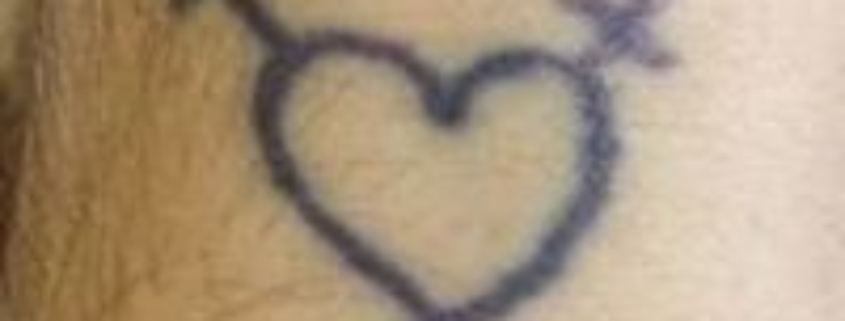Dear Glitch
You were my best friend, and I didn’t know you very well. We met at T-Time, a trans support group on our college campus. You were a founding member, and I was a latecomer. I’d transferred to UC Irvine as a junior, entering the queer community late in the school year. At my first T-Time meeting, six or eight people gathered in a tiny library-like room in the LGBT Center. I was fascinated by the gender-ambiguous people around me, some in the early stage of their medical transition. As someone who’d had one foot in the closet for years, I scrutinized you and the others, trying to discern something undiscernible. Your voice was still in the process of dropping, and you had no facial hair to speak of. Leading the group, your demeanor was sweet and open. You were a teddy bear.
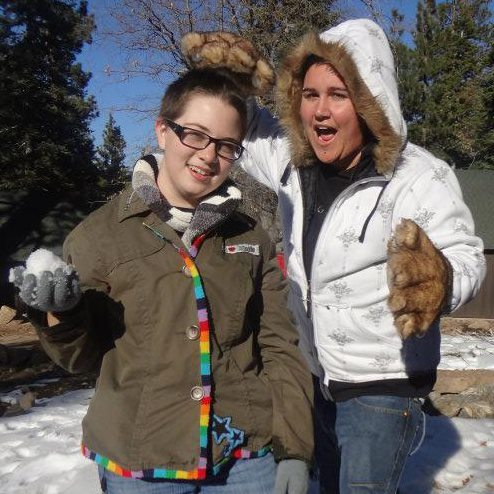 You were one of the people I held up in my mind as a legend from the moment we met. You were everything I wanted to be and be with: activist, student, stoner, lover, friend. I saw little of you until the next year, when I moved into the queer dorm on campus for my final year. You lived a couple of houses away. Standing on the bridge above the courtyard, I watched you walking alone, coming to visit your best friend, the RA of the queer dorm. You joined her in her room, two or three other privileged friends allowed inside. I watched from around corners, through doorways, wishing to be included.
You were one of the people I held up in my mind as a legend from the moment we met. You were everything I wanted to be and be with: activist, student, stoner, lover, friend. I saw little of you until the next year, when I moved into the queer dorm on campus for my final year. You lived a couple of houses away. Standing on the bridge above the courtyard, I watched you walking alone, coming to visit your best friend, the RA of the queer dorm. You joined her in her room, two or three other privileged friends allowed inside. I watched from around corners, through doorways, wishing to be included.
I don’t know how long it was until you and I became friends. I befriended another housemate, Zee, and spent a lot of time with them on top of the parking structure by the dorm, smoking weed from their phallic-looking pipe.
* * *
One day I was outside the dorm and you were hanging around. I climbed up on the wooden fence and sat down, and we started to talk. You pulled up your shorts to show me the hair climbing your legs like ivy, lamenting the impossibility of shaving them ever again. You told me how the testosterone shots were affecting you, how you injected yourself in the thigh. It didn’t matter to me what you talked about. You were talking just to me, to the exclusion of everyone else in the world. I felt like the coolest kid on campus.
You began to join us on the parking structure to smoke weed, sometimes bringing friends. You and Zee would embark on long, detailed, in-depth discussions on subjects such as: racism/antiblackness, misogyny/transmisogyny, the corrupt university administration, immigration/undocumented folks, mental illness, drugs, domestic abuse, the prison industrial complex, and on and on. I found the conversations tedious, arduous, and obtuse. I’m no philosopher, no theorist. I’m just a stoner who wanted to be among friends. I was always more focused on the weed being passed around, the company we kept, the chances we’d be caught by the ever-present campus police, who menaced the people of color and queers on campus. Though I understood the conversations, I lacked the knowledge and eloquence to join them. Your intelligence intimidated me, but you never made me feel stupid like our friends did. You were a teacher, always giving of yourself and willing to educate without condescension.
I can’t put any of this onto a timeline. It comes back to me in snatches of images and sounds and emotions.
You and your best friend became lovers, then had a falling out. She accused you publicly of abusing her, which divided the queer community on campus. Most supported her. Zee, some others, and I supported you. We found you on the top of a parking structure that day, some of your friends already there or arriving. Commiseration was offered, votes of confidence, all but vows of loyalty. I felt like I was a part of something important. I was with you, on the side of the wrongly accused. We passed around a pipe for comfort. I sensed a distance between you and me, and I felt helpless to bridge the gap.
You and I both went into our fifth year at the university. Your financial aid was cut. Without it, it was impossible for you to pay your tuition. You could no longer work toward your degree, work as an RA, or live on campus. You fought it, pushing back against the unforgiving system in vain. You moved into another on-campus apartment with Zee on the downlow. It was a precarious situation.
The night you brought shrooms over to my apartment was frightening in its intensity. I didn’t have much fun. The following morning, we woke up to find my roommate vomiting uncontrollably, unable to speak or move, eyes bulging as she watched us panic. You picked her up and carried her outside, downstairs. I drove us to the hospital. She remained for four days to be treated for an intentional overdose of a cocktail of pills and medicines.
A few months later, she left us to move back in with her family. I insisted that you move in as her replacement. I knew your situation was bad. You had plans to go to Stockton, or somewhere, because you couldn’t stay where you were. I have no idea when we became so close that I couldn’t bear the thought of you leaving.
You moved in with me. You spent your time searching for a job, seeking out new opportunities, connecting with your friends. You were independent. You fought to keep going, but the loss you suffered was immense. You lost your love, your financial stability, your almost-completed degree and the four years you worked toward it, your access to vital medications, and your chance to have the surgery you so desperately needed to feel comfortable in your own body. Still, you fought to heal the damage that had been done to you.
* * *
In February, another roommate joined us, a stranger we found on the internet. Within days, his full-blown addiction to methadone dominated our lives. He took his pill, and he sat on the couch, and he faded. His heart rate dropped to almost nothing; we pressed our ears to his chest for long minutes, straining to discern a thud. He breathed so shallowly, so slowly. Unable to bear the stress of not knowing whether he would die in our home, you and I made the decision to call an ambulance. We went through this every day for two weeks straight.
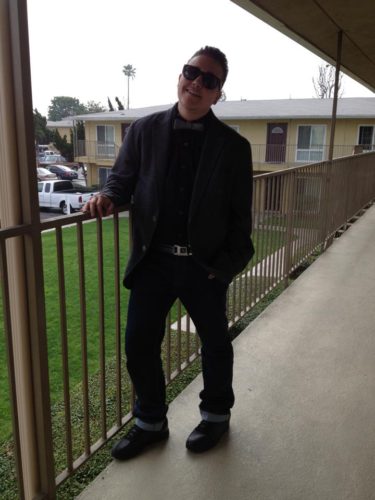
Christien “Glitch” Rodriguez
You asked me to go for a walk with you one night. My heart leaped at the chance to have your attention again like on that day outside the dorm almost a year before when you’d revealed yourself to me. Whatever you wanted to say had to be very important.
We walked down a street I hadn’t seen before, a curving street like any other in that city. You told me you wanted to pick up and move to Oakland. Zee had a place we could stay, and you had money that had been donated to a fund for your surgery. If you didn’t use the money to get away from here, you told me, you wouldn’t have a chest to have surgery on.
I withdrew from school, luckily with enough completed credits to earn a degree. You were with me, and you congratulated me as we walked away from the registrar’s office. We made our plans, told everyone who mattered that we were leaving in a week. I started packing my things, ready to escape from the nightmare we were living.
One night, as we knelt over our junkie roommate waiting for the paramedics to come make sure he wasn’t dead, I looked at you and was shocked by what I saw. The easy smile and bright eyes I had known were gone. You’d lost weight, drastically. Fear and pain suffused your face, as if a great pressure squeezed you from all sides. Your voice and your hands were shaking. After everything you’d been through, you’d kept your cool. I’d never seen anything really get to you in this way. The situation with our roommate was wearing you down to a shadow of your former self.
Very late on Monday March 4th, 2013, we drove two hours to visit your mom. You suggested it on the spur of the moment, and I was down for anything. We woke the next morning in a safe place, a sunny bedroom, the future of a life in a different city looming ahead of us. We were both due for our testosterone injections that day, and we let your mom stay in the room to observe. We drew up one shot each of the clear, oily liquid. I leaned over the bed, and you gave me my shot in my butt. Then, you sat down on the floor and, as always, played a song on your phone to help you get through it. You took long moments to calm your breathing before injecting your own needle into your leg. Only once it was fully inserted did you realize it wasn’t your dose—you’d stuck yourself with the same needle you’d just used on me, empty and useless.
You decided to wait to redo your shot properly. You were too shaky to try again. We packed the unused syringe with its liquid away. We visited with your family, then returned to our apartment in the city on Tuesday night.
I don’t remember anything that happened on Wednesday.
Thursday March 7th was your twenty-third birthday. You went out with friends.
Friday March 8th I was upset. The money for the moving truck hadn’t come through, and it looked like we wouldn’t be able to leave on Sunday like we’d wanted to. I couldn’t handle the disappointment, couldn’t handle staying any longer in the apartment that had become a war zone, hostile, dangerous, filled with a haze of smoke and memories of terror and rage.
You asked if I’d be okay if you went out again. I was not okay, but I couldn’t say no to you, didn’t have the right. I sat on the floor, head in hands, crying, raging. I’d taken on your need for escape. You and I were on the same page, and nothing would stop us from leaving everyone behind and getting the hell out.
I told you to go out for a few hours. We’d sit down and work out our plans when you came back.
You left. Came back. Came into the bedroom, put your right arm around my shoulders, and leaned your head against mine, briefly. Then, you left again.
Hours passed.
2 p.m. — I was angry. A call from your friend. Had I heard from you? No. I started calling you, texting you.
5:18 p.m. — Your friend called again, asked what you were wearing when you went out. I tried, but I wasn’t sure. Jeans, white shirt, leather jacket.
8 p.m. — A knock on the door. I opened it to find three of your friends standing there. Stricken. They asked to come in. I turned, closed the door behind me.
“He’s gone.”
So why are we standing here and not going to pick him up?
“He jumped off the Social Science parking structure.”
My shoulders and my head hit the door behind me. “No, no, no, no, no, no…” I slid down to the floor. Time was taken away from me by the blinding, erasing, encompassing emotion.
* * *
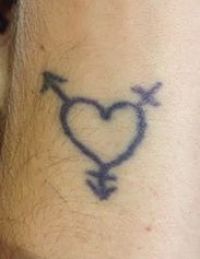
Almost a year later, I faced your mom across the dining room table in her home. She wore latex gloves, spoke confidently, reassured me. The sterilized equipment was laid bare, and there you were in front of us, your ashes mixed lovingly into a pot of purple ink.
I chose the design you’d had behind your right ear, a trans symbol just a little different from other versions. I’d considered replicating your enormous Pisces forearms tattoos, but I found the little heart to be more to my liking. On your mom’s TV, I’d chosen an alternative rock station, thinking of how you played a song for yourself every time you did your shot.
It took your mom about five minutes to etch the design into my skin. It hurt in a tight, jarring way I hadn’t expected. Halfway through, an obscure song came on, one we’d sung together: “Don’t treat me like the past, don’t let me fall behind.” I turned away from the needle and cried, gasping for breath as your mom completed the design.
I carry your body in my body, and that will never change. I carry your voice and sweet smile in my mind, hoping they’ll never fade. I carry the enormity of your decision on my shoulders. I carry the guilt in my ears, the constant stream of “What if?” with no answers.
I didn’t know you well at all. I loved the depth of your empathy and understanding of other people. I loved your creativity and intelligence, your positivity and warmth. I feel you with me, in the passenger seat of my car; I feel you in the rhythm of the random shuffle of my playlist; I feel you in the racing of my heart. I can’t yet forgive you for leaving us, but you’re my best friend, and that will never change.
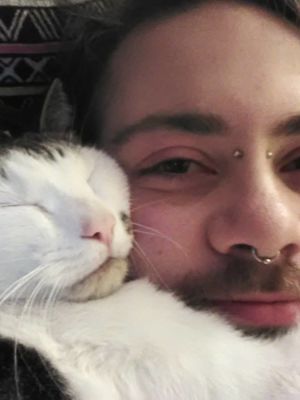 Adrien Sdao writes young adult fiction and works in a children’s bookstore in Los Angeles. They are an MFA candidate at Antioch University, Los Angeles, and they are the lead editor for the Young Adult genre at Lunch Ticket. They live in North Hollywood with their cat, Shelly.
Adrien Sdao writes young adult fiction and works in a children’s bookstore in Los Angeles. They are an MFA candidate at Antioch University, Los Angeles, and they are the lead editor for the Young Adult genre at Lunch Ticket. They live in North Hollywood with their cat, Shelly.

